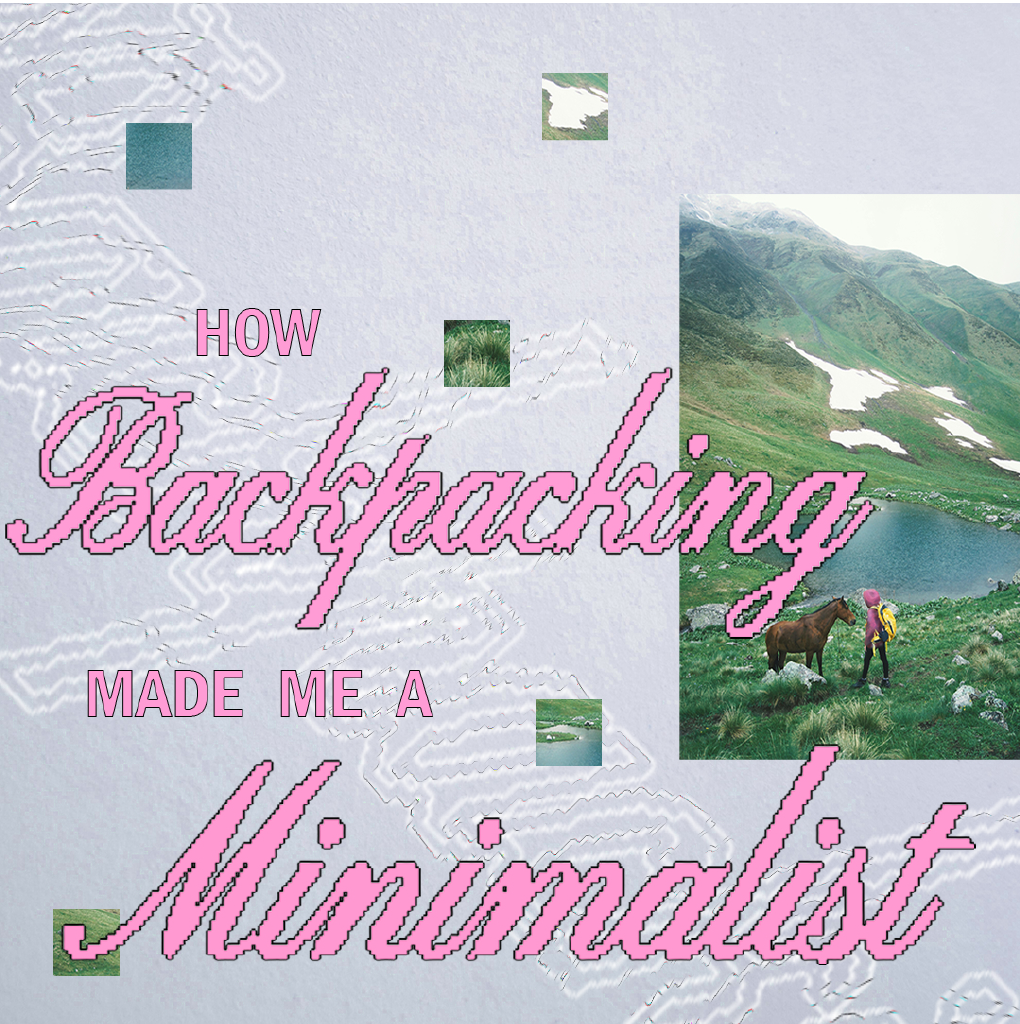How living out of a backpack turned an overconsumer into a minimalist
Minimalism is a concept that promises peace of mind, a full bank account and an escape from capitalism. It isn't just about simple furniture or blank gray walls; it's about avoiding overconsumption and emotional attachment to possessions.
As someone who loves to collect things and form attachments to objects with sentimental memories, minimalism always seemed out of reach. My perspective changed, though, when I backpacked through Central America last year.
Graphic by Lauren Adamson
In November 2024, I began my two-month-long solo trip with nothing but a 40-liter backpack, a few thousand dollars I had saved and a lot of hope.
My journey began in Costa Rica. I traversed the lush country by bus, stayed in cheap hostels and met incredible people from all over the world along the way. My life back home felt distant as rainforests and breathtaking beaches became my new norm.
Karida Tashakor enjoys lunch with friends she made in Montezuma, Costa Rica. Photo by Karida Tashakor.
That day in Montezuma, I hitchhiked for the first time. We wanted to go to a chocolate shop run by an Indigenous Costa Rican, but it was closed when we arrived. To make the most of the day and free ride, we swam in a nearby creek instead. Montezuma was the first of many days I had to go with the flow and trust the process, lessons that became essential to my travels.
Because I was constantly hopping from place to place, I needed to keep my belongings organized. Everything had to be secure and accounted for at all times. Even traveling with small things I didn't need became annoying. Lugging all my possessions on the road taught me what really mattered and what didn’t.
After three weeks in Costa Rica, I took a boat to Panama. A beautiful collection of tiny islands called Bocas del Toro was my first stop. Right before leaving the islands, I reluctantly realized my toiletries and beloved souvenirs had been stolen from my hostel bed. My naivety about leaving things unattended made me feel angry and irresponsible. I hadn’t run into a thief before, but I was bound to cross paths with one eventually. I anxiously wondered how much of my stuff would even make it home with me.
To make matters worse, I had just gone separate ways with someone I had imagined a vision of the future with. Both losses, my things and my relationship, felt completely out of my control. Both defeated and overwhelmed, I dreaded my next loss.
Something changed in me during that long bus ride off the islands. As I stared out the window at landscapes I ventured far from home to see, I started to let go. I realized no matter what else I lost on this trip, I would still have myself. Even the most valuable things I had were replaceable, but peace and self-assurance are not. The connections and memories I made along every step are unfathomably more important than whatever was in my backpack.
Traveling with only a few things grounded me. Clothing, hygiene products, my passport, a camera and trust are all I needed to have the time of my life.
I’ve been home for about 10 months and my relationship with consumption is completely altered. Rather than growing my collections of vinyl records or perfumes, I focus on using and enjoying what I already have. I spend time deliberating over a purchase instead of mindlessly buying and I try to donate or sell what I don’t use.
My suggestion to anyone seeking a simpler life is to try living with only what you need. When you get the urge to buy, ask yourself if you already have something that serves a similar purpose. If you still want something new after thinking it through, don’t beat yourself up. Not all consumption is overconsumption. New things can be fun! The real lesson is learning how to be content with what you have.
Karida Tashakor trusts herself to balance on a rusty door in Jardin, Colombia. Photo by Kardia Tashakor.



